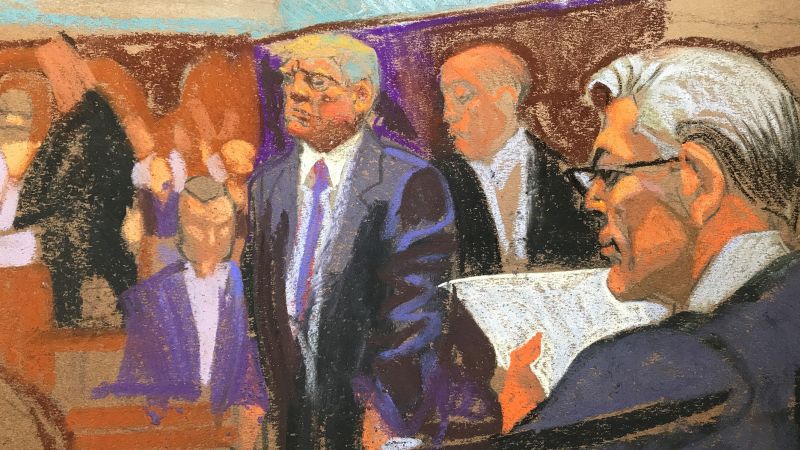Following the conviction of former President Donald Trump, online forums that have been linked to mass shootings are now being used to threaten violence and attempt to publicly identify the 12 New York jurors involved in the case. The calls for retribution began immediately after the verdict was announced, with some users on pro-Trump forums suggesting actions such as street justice or leaking the names of the jurors. Anonymity is supposed to protect jurors, but anonymous internet users are now sharing personal information about potential jurors, in a practice known as doxxing.
This online sleuthing has led to real-life security issues, such as the tactic of “swatting” where a bogus crime report is made to trigger a law enforcement response. Unfortunately, this kind of online behavior can result in misidentifying individuals and subjecting them to violent threats both on and offline. The CEO of Memetica, a threat analysis company, expressed concern about the lack of journalism standards and ethics in amateur sleuthing on social media, which can lead to wrongful accusations and mistaken identities.
In addition to threats against the jurors, there has been violent rhetoric targeting other people involved in the case, including the presiding judge, the district attorney, and journalists who reported on the case. Some of this rhetoric has been identified by researchers at Advance Democracy, a nonprofit organization. The volume of violent online rhetoric seen since Trump’s conviction is on par with previous incidents, such as the FBI search of Mar-a-Lago in 2022 and the grand jury indictment in Fulton County, Georgia, both of which led to similar online targeting.
The Institute for Strategic Dialogue (ISD), a nonprofit that tracks extremism, has noted a significant increase in online postings mentioning civil unrest following the Trump conviction. False and misleading narratives surrounding the verdict have the potential to incite individual acts of violence and increase distrust in democratic institutions. This kind of online behavior is a concern for law enforcement, as it could be a precursor to violence as the country approaches the next election. Foreign intelligence services and terrorist groups may also try to exploit the online vitriol in the coming days and weeks.
In previous incidents, violent online rhetoric has escalated to real-world violence, such as in the case of an armed man who was killed in an standoff with FBI agents after directing violent threats at the bureau. The current online threats and rhetoric following Trump’s conviction are seen as a warning sign of potential violence to come. The involvement of foreign intelligence services and terrorist groups in amplifying the online vitriol further compounds the existing security concerns. Overall, the rise of online extremism and threats poses a significant risk to public safety and democratic institutions.













